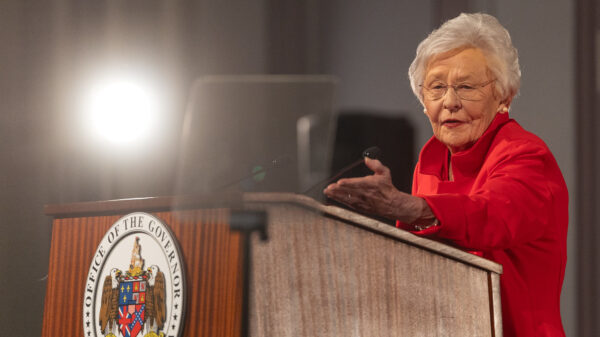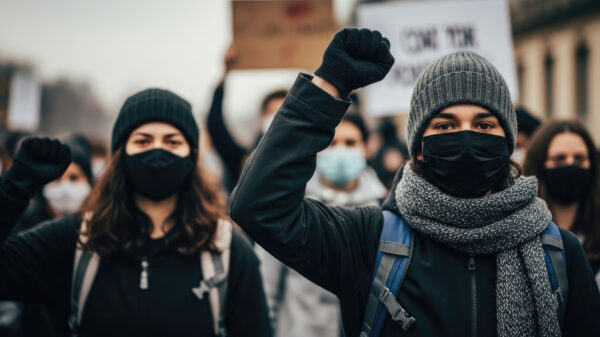Alabama saw more new COVID-19 cases and more coronavirus patients hospitalized on Thursday than ever before, and the state’s availability of intensive care beds was lower on Wednesday than any point during the pandemic.
Dr. Don Williamson, president of the Alabama Hospital Association and a former Alabama state health officer, said Thursday that the new case record is evidence of Thanksgiving gatherings and the secondary spread of coronavirus as a result.
Alabama also set a record for new COVID-19 hospital admissions and the number of coronavirus patients on ventilators, at 421 and 377 respectively, Williamson said. Just 7 percent, or 119, of the state’s ICU beds were available Wednesday. Williamson hadn’t yet received Thursday’s numbers as of Thursday afternoon.
There were 2,425 COVID-19 patients hospitalized statewide on Thursday, an 85 percent increase over the last month. UAB Hospital in Birmingham had a record 174 coronavirus patients on Thursday.
{{CODE1}}
“The real problem here is staffing,” Williamson said.
Some smaller hospitals have more than 50 medical workers out with either COVID-19 or because they’re quarantining after exposure, and some larger hospitals have more than 100 out, Williamson said.
Alabama had a record 4,695 new cases on Thursday, and over the last week added 25,413 new cases, which was 88 percent more than was added during the highest weekly total during the state’s surge in July.
{{CODE2}}
Alabama’s average positivity rate over the last week was 37 percent. Public health experts say it needs to be below 5 percent or cases are going undetected.
{{CODE3}}
The growing concern among the medical community is that additional spread due to gatherings over the upcoming holidays will send the existing surge in cases, hospitalizations and deaths into overdrive. Williamson said he’s concerned that the public may see vaccines being administered to at-risk medical staff and think the pandemics is over. For the general public, it will likely be late spring or early summer before vaccines are available.
“I’m worried that all of the things they’re doing to manage staffing could be overwhelmed by a major surge in January,” Williamson said.
The small quantities of the Pfizer vaccine in select Alabama hospitals this week may result in 40,000 frontline medical workers getting the first of two required shots this week, and possibly another 40,000 next week, Williamson said, which could help with the staffing crisis.
“But it won’t do anything relative to community transmission,” Williamson said. “It will not slow it down.”
With the threat of contracting COVID-19 now so great in Alabama, Williamson said people must ask themselves if a trip outside the home is essential.
“And if it’s essential, what is my risk of dying or being seriously ill if I get infected,” Williamson said. “Secondly, mask-wearing is not optional.”
Keeping six feet of distance from others, in all directions, is a minimum, Williamson said, and people should be washing their hands thoroughly and frequently.
The Alabama Department of Public Health reported an increase Thursday of 56 more Alabamians who have died from COVID-19, bringing the state’s total death toll to 4,254.
{{CODE4}}
It can take weeks, and even months, for ADPH to confirm a person has died from COVID-19 and to report those deaths to the department’s website, but ADPH also reports the day those persons died. According to that data, Dec. 8 was one of the deadliest in the state, with 26 people dying from coronavirus. The record is 36 deaths, set on July 31.
Data for deaths by date of death is incomplete for the past several weeks and the totals are sure to grow. During the first week of December, 23 percent more Alabamians died from COVID-19 than during the first week of November, but those figures are likely to change as ADPH continues to confirm more COVID-19 deaths.
















































